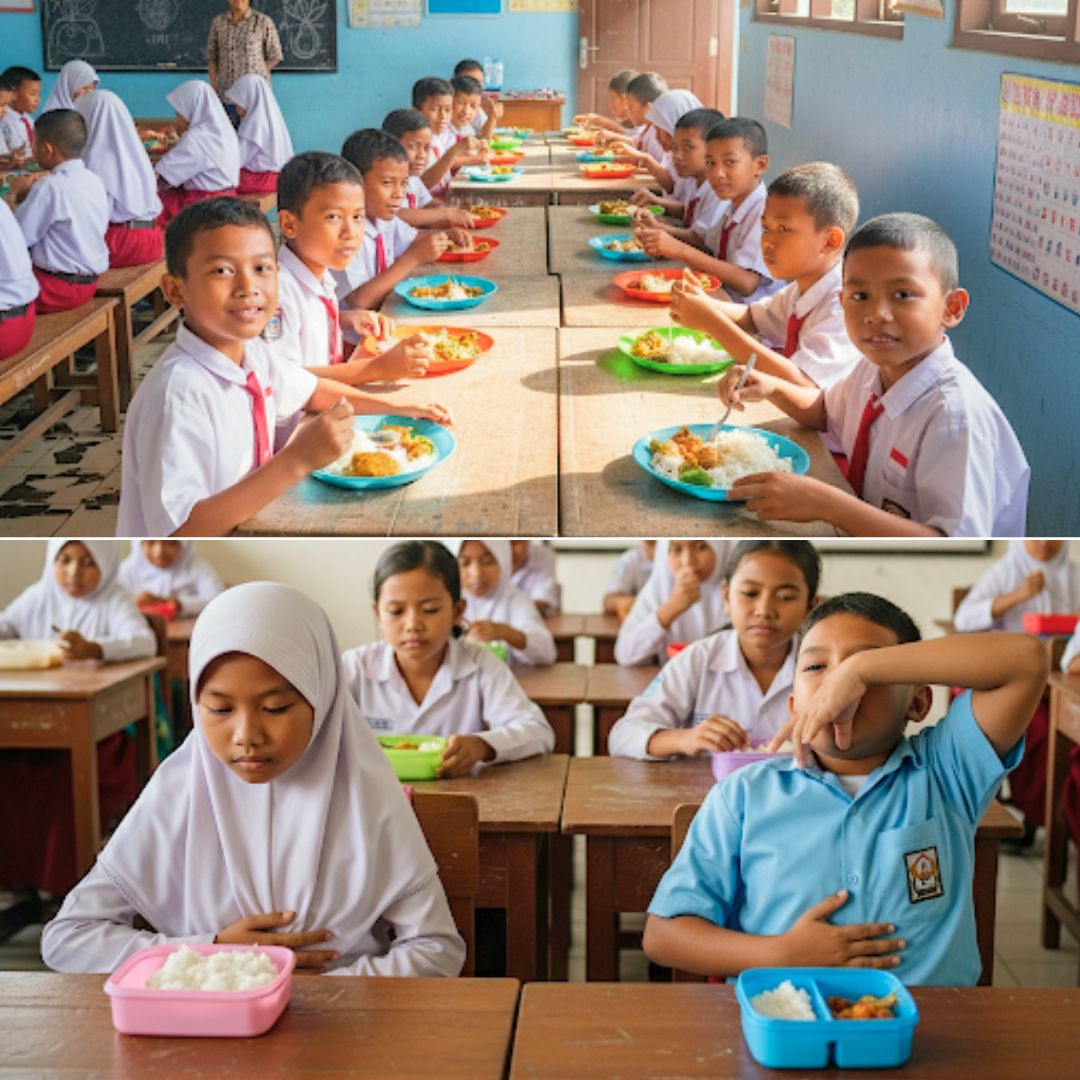Around 400 children and staff fell ill after consuming free school meals in Indonesia’s Bengkulu Province and Central Java’s Sragen region, experiencing symptoms such as vomiting, diarrhoea, headaches, and abdominal pain.
The government has temporarily shut down implicated kitchens and initiated investigations into these incidents, which are the largest outbreaks linked to President Prabowo Subianto’s flagship free meal scheme. The program, launched in January 2025 to combat malnutrition, faces ongoing food safety challenges amid its rapid expansion aiming to serve 83 million by the year-end. Authorities have promised stricter hygiene protocols, medical support for affected children, and operational reviews.
Largest Outbreaks Shine Spotlight on Food Safety
The free school meal scheme, intended to provide daily nutritious meals to children and pregnant women, has faced repeated crises in food safety since its rollout. In mid-August, more than 360 individuals, including students and staff in Central Java’s Sragen district were hospitalised after consuming meals from a central kitchen, with laboratory tests probing for contamination sources.
The meals reportedly included turmeric rice, fried tempeh, cucumber and lettuce salad, scrambled eggs, sliced apples, and milk. Similar symptoms and outbreaks emerged in early September in Bengkulu Province, affecting around 400 children aged 4 to 12 years. Local officials quickly halted food distribution from the implicated kitchens and launched investigations to confirm the cause.
Witness accounts include children being woken at night with severe abdominal pain and others reporting their distress on social media platforms. Sragen Government Head, Sigit Pamungkas, acknowledged the programme-wide concerns: “We cannot make immediate definitive conclusions, but it is clear that the problem is not isolated”.
Program Ambitions and Operational Challenges
Indonesia’s free school meal programme is among the largest welfare initiatives globally, earmarked with a budget of 171 trillion rupiah (approx. $10.5 billion) to feed an estimated 83 million Indonesians by the end of 2025. Promoted as a pivotal effort to tackle child hunger, stunting, and support vulnerable pregnant women, the scheme is a key plank of President Prabowo’s leadership agenda.
However, the rapid scale-up has come with costly challenges. Since the launch, over 1,000 individuals have reportedly fallen ill from food-borne illnesses linked to the meals. The National Nutrition Agency (BGN) has committed to rigorous reviews aiming at hygiene improvements and protocol enforcement, responding also to public criticism of the sizeable government spending. The government has pledged to shoulder any medical costs for those affected while ensuring stricter food safety controls.
The Logical Indian’s Perspective
The aspiration to eradicate hunger and malnutrition through free school meals is unquestionably noble and necessary. Yet, the repeated outbreaks linked to this programme underscore the critical importance of robust food safety measures at every level- from sourcing to preparation to distribution.
Protecting the health and dignity of children demands that welfare programs do not compromise on hygiene standards or accountability. Transparent investigations, systemic reforms, and community involvement are essential to restore public confidence and prevent recurrence.












